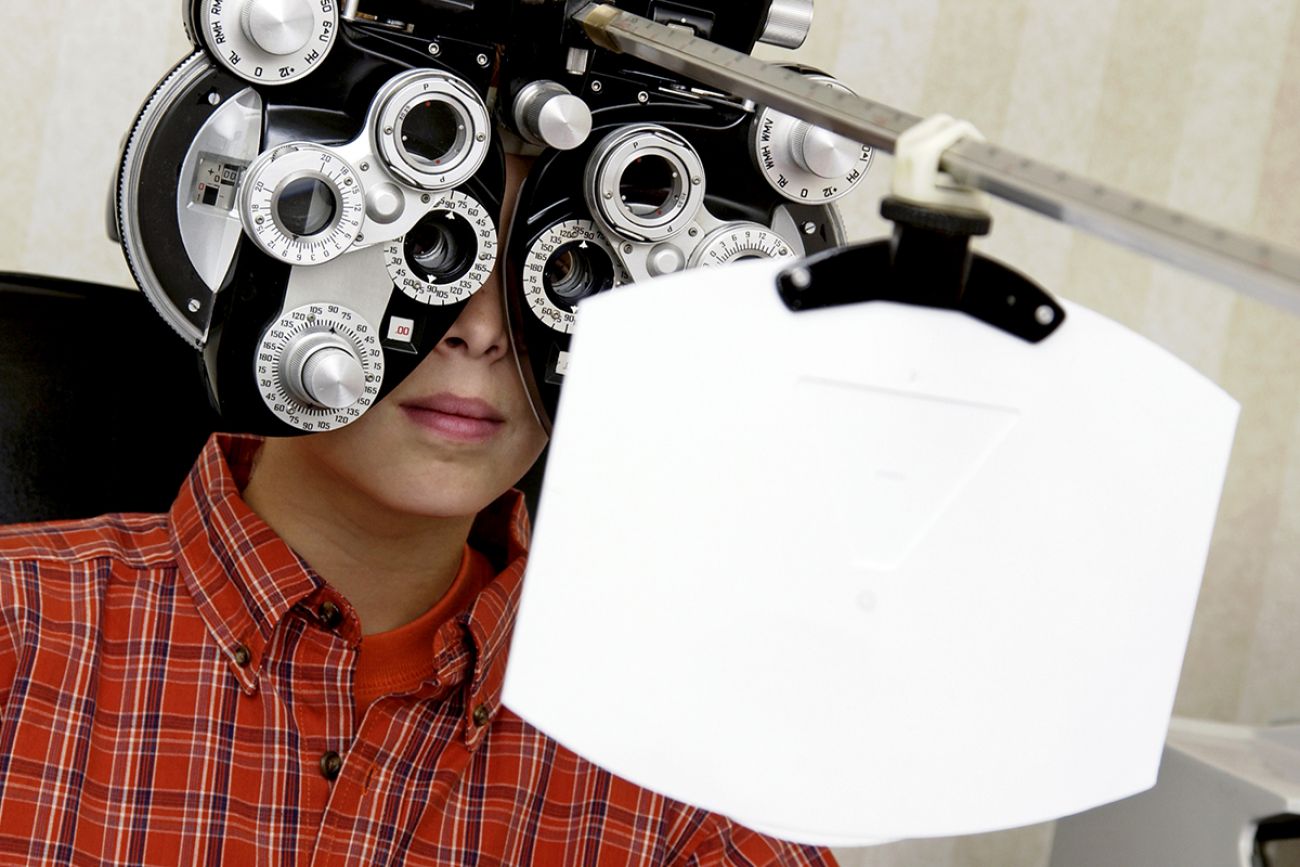Screen time is making kids nearsighted. Parents can help, U-M survey shows

More and more children are suffering from nearsightedness and too much screen time and not enough time spent outside are the main reasons why, according to a recent poll of over 2,000 parents nationwide conducted by the University of Michigan C.S. Mott Children’s Hospital.
According to the American Association of Opthamology, 41.6 percent of Americans have myopia, the scientific diagnosis for nearsightedness, and that number is expected to reach 50 percent worldwide by 2050 according to the International Agency for the Prevention of Blindness, prompting Mott researchers and doctors to explore the issue from the eyes of parents.
The results of the poll suggest over half of parents overlook basic steps to protect their children’s eyes. In the survey, 49 percent of parents reported screen time having a major impact on their kids’ eye health along with other factors like poor lighting for reading (45 percent) and diet (40 percent).
Related:
- University of Michigan gun violence researchers hope to curb shooting deaths
- Michigan blood donations still lagging pre-pandemic levels
The most common steps that parents reported taking to protect their kids’ eyes were making sure kids had adequate reading light (85 percent), reminding kids to move back from screens (74 percent), making sure kids get enough Vitamin A (66 percent) and reducing screen time (60 percent)
Mott Poll co-director Sarah Clark told Bridge Michigan the most common steps that were reported like moving back from screens and proper reading light are outdated tips from older generations and that they should be prioritizing restricted screen time and increased time spent outdoors to protect their kids’ eyes.
“Sixty percent of parents said that they limit the amount of screen time so you can look at that and say, 'hey, 60 percent, that's pretty good,'” Clark said. “But really, it should be much higher. We want closer to 100 percent of parents recognizing that that's really an important factor for kids' eye health.”
University of Michigan ophthalmologists that contributed to the report suggested parents set specific times each day for children to be away from screens and set a one- to two-hour block a day for kids to spend outside. According to a study published by the British Medical Journal in 2020, there is evidence that exposure to bright, natural light can reduce nearsightedness in children with proper protection like sunglasses or a wide-brimmed hat.
“The combination of taking a break from the screen time and that up-close work and replacing that with some time outdoors really seems to lessen the chances that a child will develop myopia or nearsightedness,” Clark said. “That's the concrete action we want parents to take.”
Clark said parents often take eye health for granted until there’s a problem.
Only 54 percent of parents reported taking their kids to an eye doctor in the past two years and 14 percent of parents said that their kids have not gotten their eyes checked at their primary doctor or at school in the past two years.
The report says children should have regular vision tests every two years and parents should take them to an eye doctor if the test indicates a problem or if a child is mentioning blurry vision often.
See what new members are saying about why they donated to Bridge Michigan:
- “In order for this information to be accurate and unbiased it must be underwritten by its readers, not by special interests.” - Larry S.
- “Not many other media sources report on the topics Bridge does.” - Susan B.
- “Your journalism is outstanding and rare these days.” - Mark S.
If you want to ensure the future of nonpartisan, nonprofit Michigan journalism, please become a member today. You, too, will be asked why you donated and maybe we'll feature your quote next time!




